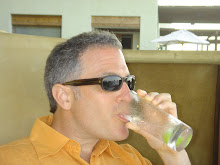A word about numbers
In nearly all of the criticisms of wine scores that I’ve encountered over the years, I find that people try to read more meaning into them than perhaps they deserve.
Some wonder, Are scores adjusted for price? Generally speaking, no. Others ask if the producer’s reputation is considered. Again, no. Still others speculate why they’ve never seen a 100-point Beaujolais. Are scores varietal-biased? Nope, some varietals, enjoyable though they may be, simply don’t offer the complexity of, say, a Premier Cru Burgundy.
Underlying all these concerns is the belief that apples-to-apples comparisons can never -- and should never -- be made. As if, somehow, wines were above that. What then is the purpose of wine competitions if wines cannot be compared?
Rather than put too fine a point on the business of scores – and it is a business – a more serviceable approach may be this:
Let’s put scores back into context for a moment. The reason why critics put scores in their reviews is because they believe (rightly) that people need them.
While it is true that numbers without commentary are arbitrary and of little real value to consumers, it is also true that most people, when presented with a paragraph of tasting notes AND a score, are going to look at the score first and then decide if the review is worth reading. Would you bother reading a review of a wine with a dreadful score? Didn’t think so.
Conversely, a high score on an unfamiliar label/varietal/appellation might intrigue a reader enough to spend time with the actual review. In this instance, (high) scores have the effect of broadening a drinker’s horizons, instead of narrowing them as the naysayers fear.
In the end, we need scores, we need critics, we need to make comparisons between wines because there is an overwhelming amount of choice. And with almost no meaningful advertising coming from producers as to what distinguishes their wines (other than scores), there is simply nowhere else to turn. (Please, don’t get me started on the recommendations of retailers. Their interests are as conflicted as the publisher who reviews the wines of its advertisers.)
As for wine producers taking control of their message and having their brand stand for something, well, that’s what I do for a living. Operators are standing by . . .
Some wonder, Are scores adjusted for price? Generally speaking, no. Others ask if the producer’s reputation is considered. Again, no. Still others speculate why they’ve never seen a 100-point Beaujolais. Are scores varietal-biased? Nope, some varietals, enjoyable though they may be, simply don’t offer the complexity of, say, a Premier Cru Burgundy.
Underlying all these concerns is the belief that apples-to-apples comparisons can never -- and should never -- be made. As if, somehow, wines were above that. What then is the purpose of wine competitions if wines cannot be compared?
Rather than put too fine a point on the business of scores – and it is a business – a more serviceable approach may be this:
SCORES. JUST. ARE.
In other words, you can make all kinds of arguments for what a score means/implies/accounts for, but in the end, it’s simply a number that accompanies the wine, much like the price that (supposedly) reflects it.Let’s put scores back into context for a moment. The reason why critics put scores in their reviews is because they believe (rightly) that people need them.
While it is true that numbers without commentary are arbitrary and of little real value to consumers, it is also true that most people, when presented with a paragraph of tasting notes AND a score, are going to look at the score first and then decide if the review is worth reading. Would you bother reading a review of a wine with a dreadful score? Didn’t think so.
Conversely, a high score on an unfamiliar label/varietal/appellation might intrigue a reader enough to spend time with the actual review. In this instance, (high) scores have the effect of broadening a drinker’s horizons, instead of narrowing them as the naysayers fear.
In the end, we need scores, we need critics, we need to make comparisons between wines because there is an overwhelming amount of choice. And with almost no meaningful advertising coming from producers as to what distinguishes their wines (other than scores), there is simply nowhere else to turn. (Please, don’t get me started on the recommendations of retailers. Their interests are as conflicted as the publisher who reviews the wines of its advertisers.)
As for wine producers taking control of their message and having their brand stand for something, well, that’s what I do for a living. Operators are standing by . . .


